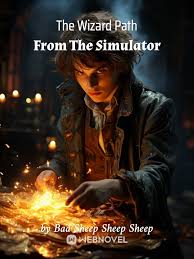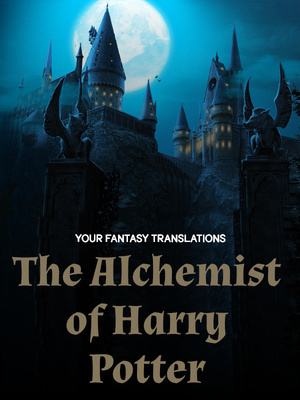Chapter 473 Training
Kalashnikov is a soldier, not a pure scientist. He also has some understanding of strategy and tactics, so it is easy to understand Shulka's worries.
Therefore, Kalashnikov has reasons to help Shulka, whether it is considered from Stalingrad or from the Soviet Union, or from his own consideration.
With the help of Kalashnikov, things are much simpler.
For example, the materials that Shulka placed in front of Major Mikhailvich even included the internal structure diagram of the factory and the underground sewage pipes.
"We have to memorize these drawings!" Shulka said.
"What's the use of memorizing them?" Andrianka asked suspiciously: "Even if we are lucky in the future and we will be thrown into urban warfare, it will not be Stalingrad! But these are the terrain of Stalingrad Diagrams and structure diagrams..."
As he spoke, Andrianka took a structural diagram and made a fuss.
"You are right, Comrade Andrianka!" Shulka said: "These are indeed topographic maps of Stalingrad, and the chances of us using them in the future are very small. But the problem is that in any urban street battle, We should all start by memorizing topographic and structural maps, not just Stalingrad!"
To be honest, this is different from the combat habits of the Soviet army. Their tactics are more about charging towards the enemy after learning to shoot.
As for the others, let’s wait until the battlefield.
"I think Shulka is right!" Major Mikhailvich said: "If we can memorize these buildings and their structures, we will be able to support each other more flexibly when fighting the enemy!"
"Okay!" Andrianka said: "If memorizing buildings can support each other more flexibly and quickly, then why should we remember underground pipes?"
"Those pipelines can be the channel for our troop transport, or even the battlefield!" Shulka replied.
"You mean those pipelines? We fight in those pipelines?" Andrianka's eyes widened.
"Is there any question?" Shulka asked back.
“Those pipes are full of factory wastewater, some even poisonous!”
"Compared to being killed by the enemy?" Shulka asked back.
So Andrianka fell silent.
Fighting in pipelines may seem unbelievable now, but when the Battle of Stalingrad was in full swing, when there were tens of thousands of casualties every day on average, no one would care whether there was sewage in these pipelines Or poisonous gas.
"Do as you say, Comrade Shulka!" Major Mikhailvich had no objection.
Because for him, training in other directions is useless, so it is better to let Shulka go.
So, after further discussing the detailed training plan, the training of the 82nd Infantry Regiment started the next day.
Training subjects are divided into day and night.
This is mainly night battles, because night battles are more beneficial to the weakly equipped Soviet army, especially when the Soviet army is familiar with the terrain.
The special one is the underground pipeline training...
Of course, real underground management training cannot be carried out at this time. The factories are still working overtime in production, and they discharge waste water into the Volga River almost day and night.
For this reason, Shulka asked the soldiers to collect a large number of gasoline barrels.
In fact, there is no need to collect them. Just tell Kalashnikov. There are many broken and piled up gasoline drums in the factory.
The soldiers opened up these gasoline barrels on both sides, and then connected them together section by section, simulating various underground pipelines.
In fact, most of the underground drainage pipes in those factories are much wider than gasoline barrels, and some can even accommodate several people walking side by side in them.
The reason why Shulka used gasoline barrels for training was mainly to allow soldiers to adapt to the fear of being closed in pipes and narrow spaces.
Specific training is generally organized by Shulka himself.
This is impossible. Few people in the 82nd Infantry Regiment have combat experience. If they have combat experience, it is also the experience of being defeated and fleeing. Vichy and Valery.
The head of the regiment, Major Mikhailvich, graduated from a military school and spent several months in enemy-occupied areas. He has obvious advantages in theory and psychological quality.
Valery participated in several battles, one of which was to block Guderian's armored forces in Bryansk.
"We have deployed a lot of anti-tank firepower on both sides of the road!" Valery said: "In fact, we have built a line of defense in the longitudinal direction of the road, because we think they can only break through along the road, we just need to hold the road and its two wings." We can block their attack!"
This is the most typical mistake made by the Bryansk Front in the battle.
"They did break through from the road!" Valery continued: "Dozens of tanks attacked our line of defense under the cover of planes and artillery. Our anti-tank guns destroyed the enemy one after another, defeating the enemy again and again." The enemy's attack, we rejoiced and our morale was high. But...we suddenly received information, they said that the enemy's armored forces were already behind us! The enemy is very cunning, we were fooled!"
Valery's troops retreated under such circumstances.
Of course, I didn't get the order from the superior.
Because no one dared to order a retreat...otherwise it would be a violation of Order 270.
Unless, they report to the Supreme Command and then get the permission of the Supreme Command.
But at that tense moment, it was basically impossible to wait for the order of the Supreme Command, because at that time the German army had already closed the encirclement and it was meaningless to get permission.
The facts are indeed true... In the Battle of Bryansk, the Soviet army failed to break through in time, resulting in 673,000 people being captured, and the Bryansk Front Army also lost its combat effectiveness.
Capture or retreat?
Valery and others chose to retreat.
But the result of the retreat was not much better, because they were considered to "run away" and became the current 82nd Infantry Regiment...even the 3rd Army fell into this situation.
These can be said to be the combat experience of the 82nd Infantry Regiment.
Combat experience like this obviously didn't play much role in the urban street fighting in the Stalingrad Defense War.
Compared to them, Shulka has fought in Brest, and also has the experience of guarding Kyiv, Odessa, Moscow, and of course the experience of commanding tank troops to attack towns.
So he did his part, and the responsibility of the chief instructor of course fell on Shuerka's shoulders.
It's just that Shulka also invited an assistant, that is Kalashnikov... He was originally a tank soldier and has more knowledge about tanks.
(end of this chapter)
RECENTLY UPDATES







